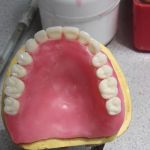- 1. Understanding Tooth Sensitivity: What Causes It?
- 2. Best Care Methods for Managing Tooth Sensitivity
- 3. Home Remedies for Tooth Sensitivity
- 4. When to See a Dentist for Tooth Sensitivity
- 5. Preventing Tooth Sensitivity: Tips for Long-Term Relief
1. Understanding Tooth Sensitivity: What Causes It?
Tooth sensitivity, also known as dentin hypersensitivity, is a common dental problem that causes discomfort or pain when your teeth are exposed to certain stimuli, such as cold, hot, sweet, or acidic foods. The discomfort is typically due to the exposure of the tooth's inner layer, called the dentin, which is connected to nerve endings. When the protective enamel is worn down, the nerves become more sensitive to external triggers.
Several factors contribute to tooth sensitivity, including tooth decay, gum recession, aggressive brushing, and even certain medical conditions. In some cases, teeth grinding (bruxism) or acidic food consumption can further exacerbate the condition.
2. Best Care Methods for Managing Tooth Sensitivity
Tooth sensitivity can be effectively managed with the right care methods. Here are some of the best approaches to relieving discomfort and improving your dental health:
- Use Desensitizing Toothpaste: Toothpastes specifically designed for sensitive teeth contain compounds that help block the transmission of sensation from the surface of the tooth to the nerve. Regular use of these toothpastes can significantly reduce sensitivity over time.
- Brush Gently: Brushing too hard can contribute to enamel erosion and gum recession, both of which increase sensitivity. Use a soft-bristled toothbrush and avoid harsh scrubbing motions.
- Choose the Right Toothbrush: Opt for a toothbrush with soft bristles, as this will minimize damage to both your enamel and gums. Consider electric toothbrushes with built-in pressure sensors to ensure a gentle brushing technique.
- Fluoride Treatments: Fluoride helps strengthen the enamel and reduce tooth sensitivity. Your dentist may recommend fluoride varnishes or treatments to provide relief and protect your teeth.
3. Home Remedies for Tooth Sensitivity
If you’re dealing with mild tooth sensitivity, there are several home remedies you can try to alleviate the discomfort:
- Salt Water Rinse: A warm saltwater rinse can help reduce inflammation and promote healing in sensitive areas of the mouth.
- Desensitizing Gel: Some people find relief from using over-the-counter desensitizing gels, which can be applied directly to the sensitive areas of the teeth.
- Coconut Oil Pulling: Coconut oil has natural antibacterial properties, and oil pulling can help reduce plaque buildup, which can contribute to tooth sensitivity.
- Dietary Adjustments: Avoiding overly acidic foods and drinks, such as citrus fruits, soda, or vinegar, can prevent further irritation of sensitive teeth. Instead, focus on a balanced diet rich in vitamins and minerals to support tooth health.
4. When to See a Dentist for Tooth Sensitivity
While mild tooth sensitivity can often be managed at home, it’s important to see a dentist if the sensitivity persists or worsens. Your dentist can help determine the root cause of the sensitivity and recommend professional treatments that can provide long-term relief.
Here are some signs that it’s time to schedule a dental visit:
- Persistent Pain: If your tooth sensitivity lasts for weeks or months and does not improve, it could be a sign of a more serious issue such as a cavity or gum disease.
- Visible Damage: If you notice chips, cracks, or visible wear on your teeth, these could be contributing to the sensitivity and may require professional treatment.
- Severe Sensitivity: If the pain becomes sharp or intolerable, especially when eating or drinking, it’s time to seek professional dental care.
A dentist can recommend treatments such as fluoride varnishes, dental bonding, or more advanced options like root canals if necessary.
5. Preventing Tooth Sensitivity: Tips for Long-Term Relief
Preventing tooth sensitivity from developing in the first place is the best way to protect your teeth. Here are some key habits and tips to help maintain your dental health and avoid sensitivity:
- Practice Good Oral Hygiene: Brush your teeth twice a day, floss daily, and use fluoride toothpaste. Good oral hygiene helps prevent cavities and gum recession that contribute to sensitivity.
- Avoid Grinding Your Teeth: If you grind your teeth, especially at night, consider using a mouthguard to protect your teeth from wear and tear.
- Regular Dental Check-Ups: Regular visits to the dentist can help identify any issues early and allow for prompt treatment, preventing sensitivity from developing into a more serious problem.
- Protect Your Teeth: If you consume acidic foods or drinks, rinse your mouth with water afterward and wait at least 30 minutes before brushing. This gives your enamel time to re-harden.
By following these preventive measures, you can keep tooth sensitivity at bay and maintain optimal dental health. If you're experiencing tooth sensitivity, don't wait—schedule a consultation at Dentistry Toothtruth for expert care and treatment options.







 Dorfman Orthodontic Group - Bensalem5.0 (199 review)
Dorfman Orthodontic Group - Bensalem5.0 (199 review) Dental Solutions of Roxborough4.0 (219 review)
Dental Solutions of Roxborough4.0 (219 review) Suburban Dental Medicine4.0 (31 review)
Suburban Dental Medicine4.0 (31 review) Smiles Divine Dental4.0 (25 review)
Smiles Divine Dental4.0 (25 review) Icon Dental4.0 (48 review)
Icon Dental4.0 (48 review) Affordable Dentures & Implants4.0 (443 review)
Affordable Dentures & Implants4.0 (443 review) The Importance of Oral Health Education During Pregnancy for a Healthy Pregnancy
The Importance of Oral Health Education During Pregnancy for a Healthy Pregnancy Best Tips for Brushing Your Teeth Properly for Healthy Gums: Essential Techniques for Oral Health
Best Tips for Brushing Your Teeth Properly for Healthy Gums: Essential Techniques for Oral Health Why Skipping Dental Checkups Can Lead to Bigger Oral Health Problems
Why Skipping Dental Checkups Can Lead to Bigger Oral Health Problems Advantages of Porcelain Dental Restorations
Advantages of Porcelain Dental Restorations How Can Diabetes Cause Tooth and Gum Problems? Preventing and Managing Oral Health Issues
How Can Diabetes Cause Tooth and Gum Problems? Preventing and Managing Oral Health Issues Healthy Habits for Promoting Good Oral Health and Hygiene: Tips for a Healthy Smile
Healthy Habits for Promoting Good Oral Health and Hygiene: Tips for a Healthy Smile